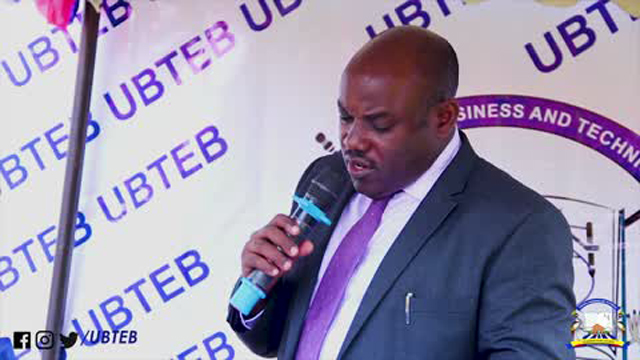
Kampala, Uganda | THE INDEPENDENT | The absence of a law is affecting the role of the Uganda Business and Technical Examination Board (UBTEB) in assessing all certificate and diploma training institutions in the country.
UBTEB was formed under the Business, Technical, Vocational Education and Training (BTVET) Act and is supposed to oversee the assessment of all vocational and technical institutions.
However, due to the lack of a law supposed to put in place national examinations for these institutions administered by UBTEB, some institutions set and teach content that is not aligned to the set BTVET curriculum.
Speaking at the UBTEB 10th anniversary, Onesmus Oyesigye, the Executive director of UBTEB said that the loophole has enabled unaccredited learning institutions to continue teaching learners but not following the set national standard.
Oyesigye says the board as a result, cannot assess the estimated three percent of institutions that use this loophole to operate independently with no supervision at all.
The commissioner in charge of Technical Vocational Education and Training at the Ministry of Education, Joseph Kikomeko says they are working towards streamlining the BTEVT Act to ease the work of UBTEB.
“We are working towards enacting laws that will ease the work of BTVET assessment institutions. We hope to have these laws soon,” he said.
The Ministry of Education is in the process of repealing the BTVET Act so that all the shortcomings of the law are addressed. According to education officials, a regulatory impact assessment has been carried out and all redundant laws that affect the performance of boards such as UBTEB have been highlighted.
Oyesigye says once the laws are repealed, it will create new qualification structures that will enable UBTEB candidates to access work in government offices.
Despite such impediments, the board has been able to register several achievements in the past 10 years. They include; increase in candidature registration from 10,000 in 2011 to 256,712 in 2021, and increasing the number of examinable programs to 173.
The Minister of Education and Sports, Janet Kataha Museveni applauded the work of the examination body saying its work is crucial to the development of human capital.
“As a country, we have channeled our energies towards industrial development to facilitate national growth and development. This will drive demand for a more specialized and skilled labor force as well as high technology. Agencies like UBTEB form a critical base of entities that will make a direct contribution in human capital development which is so essential for industrial growth and national development,” the minister said in a statement read by the State Minister for Education in charge of tertiary education, John. C Muyingo.
*****
URN
 The Independent Uganda: You get the Truth we Pay the Price
The Independent Uganda: You get the Truth we Pay the Price


